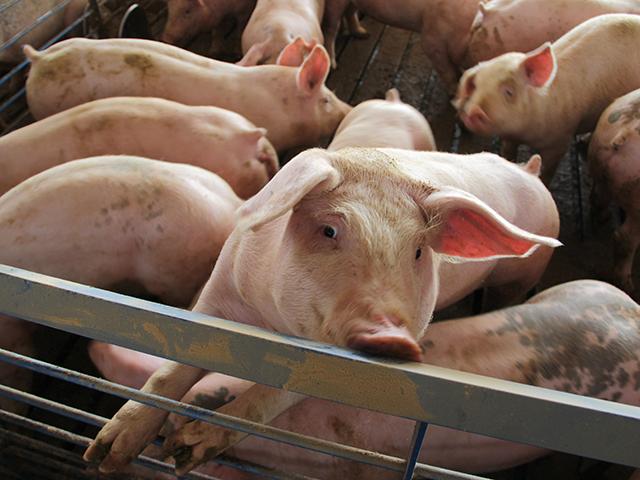Massachusetts Animal Welfare Law Facing Scrutiny
Judge to Consider Whether Federal Law Preempts Animal Welfare Law in Massachusetts
LINCOLN, Neb. (DTN) -- A federal judge in Massachusetts ruled on Feb. 5 that an exemption in the state's animal welfare law was unconstitutional.
Judge William G. Young in the U.S. District Court for the District of Massachusetts ruled that a key exemption in the Prevention of Farm Animal Cruelty Act was unconstitutional and violated the Dormant Commerce Clause. Young ordered that the exemption be severed from the state law. The law was created after voters approved ballot Question 3 in 2016.
The law requires companies that sell pork in Massachusetts to sell pork from producers who abide by the law's requirements on animal pen size and other issues.
However, the state law had exempted pork products sold at federally licensed facilities operating only in Massachusetts. There are just three such facilities in the state.
The judge said he would evaluate whether the state law would then be preempted by the Federal Meat Inspection Act.
Young gave the plaintiffs, led by Triumph Foods, 30 days to file a motion for summary judgment on those grounds. Some slaughterhouses are federally licensed through the act.
Triumph operates a federally inspected plant in St. Joseph, Missouri.
Because the plant does not operate in Massachusetts, Triumph does not qualify for the exemption under Massachusetts law because it sells its pork to grocers in the state.
This means, the company has argued, to qualify for an exemption in Massachusetts, it would have to build a federally licensed plant in that state.
P[L1] D[0x0] M[300x250] OOP[F] ADUNIT[] T[]
The court also denied a motion to dismiss the case filed by the state of Massachusetts.
The court had previously denied all motions for summary judgment filed by the plaintiffs but ruled on Monday that it was vacating part of that order to consider the exemption issue.
"In order to produce compliant pork, Triumph must (and in fact, has begun to) restructure its processing facility and procedures, segregating pork that meets the requirements of the Act," the judge said in his ruling.
"Without compliant pork, Triumph is unable to sell its products into Massachusetts at all. These are both concrete, particularized injuries to Triumph. This injury to Triumph is also imminent and actual economic harm."
The state of Massachusetts had argued in court that the exemption for federal facilities advances a "legitimate" local purpose.
"The court takes no position on whether the act itself serves a legitimate local purpose, but the slaughterhouse exception itself does not appear to meet the act's purported local purpose, as it does not prevent noncompliant pork meat from sale in the Commonwealth of Massachusetts," Young said in his ruling.
"The court, therefore, rules that the slaughterhouse exception violates the dormant Commerce Clause because it discriminates against out-of-state commerce."
The law took effect in June 2022, and on the heels of a Supreme Court ruling that upheld California's Proposition 12, a group of farms, food and processing companies in July 2023 asked the district court to halt enforcement of the law.
The farms and pork processors filing legal action include Triumph Foods LLC, Christensen Farms Midwest LLC, The Hanor Company of Wisconsin LLC, New Fashion Pork LLC, Eichelberger Farms Inc., and Allied Producers' Cooperative. Thirteen states have also joined the lawsuit.
In 2022, Triumph processed over 11 million pounds of pork meat, according to court documents, although it's not clear how much of that pork complied with the state's law.
Thirteen states signed on to an amicus brief in support of the companies, including Iowa, Louisiana, Mississippi, Missouri, Montana, Nebraska, New Hampshire, North Dakota, Oklahoma, South Carolina, South Dakota, Utah and Wyoming.
Massachusetts's law makes it illegal to sell whole pork meat in the state if it comes from farms where animals were "confined in a cruel manner."
While the law facially appears to regulate just the sales of pork in Massachusetts, the 13 states have said it has a much broader effect on farms and companies across the country.
Read more on DTN:
"Mass. Wants Question 3 Suit Dismissed," https://www.dtnpf.com/…
"13 States Join Animal Law Fight," https://www.dtnpf.com/…
Todd Neeley can be reached at todd.neeley@dtn.com
Follow him on X, formerly known as Twitter, @DTNeeley
(c) Copyright 2024 DTN, LLC. All rights reserved.





